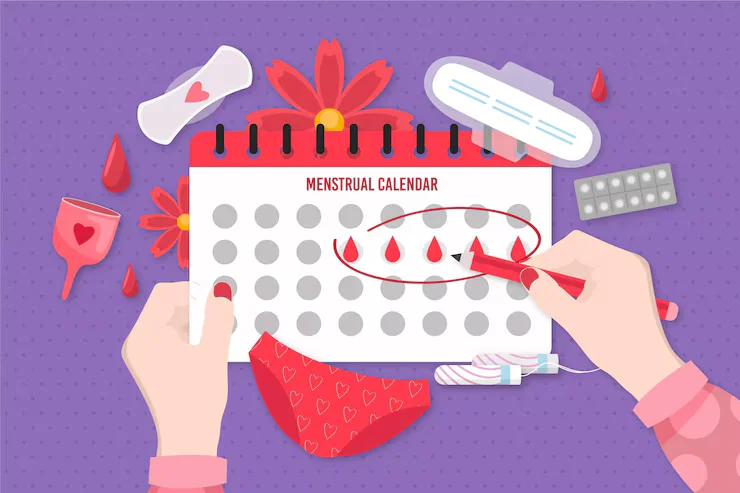-
UNITED HEALTH CENTRE 2,ELLIOT ROAD, KOLKATA - 700016
UNITED HEALTH CENTRE 2,ELLIOT ROAD, KOLKATA - 700016

Irregular Periods in Teenagers can stem from hormones, stress, or diet—expert tips and insights from a reputed gynecologist.
In today’s fast-paced world, many teenage girls experience changes in their menstrual cycles. One month it’s on time, the next it’s not—leaving parents and teens alike wondering: Is this normal?
Irregular periods in teenagers are more common than most people realize, especially in the early years after menstruation begins. While often harmless, there are times when irregular cycles can be a sign of deeper issues that require attention and support.
This guide breaks down the possible causes, red flags to look for, and the importance of professional care, so that teens and their caregivers feel empowered, not alarmed.

Most girls begin menstruating between the ages of 10 and 15. In the first few years after the first period (menarche), it’s completely normal for cycles to be unpredictable. This is because:
In many cases, periods stabilize naturally within 2–3 years.
Let’s look at the most common, science-backed reasons why periods may go off schedule in adolescent girls.
All of these may interfere with the menstrual cycle and need to be evaluated by a medical expert.

Not all irregularities are cause for alarm. However, professional advice should be sought if a teenager:
Early evaluation ensures that any underlying conditions are managed effectively.
Addressing irregular periods in teenagers early on can:
This is where guidance from a professional gynecologist or any trained adolescent gynecology expert becomes invaluable.
Hormonal health isn’t isolated—it’s linked to lifestyle choices. Here’s how teens can support regular cycles:
By making these lifestyle changes, teens may naturally see improvements in menstrual regularity.
Understanding the ups and downs of irregular periods in teenagers means creating a space that’s both medically informed and emotionally safe. Parents, caregivers, teachers, and healthcare professionals all play a role in supporting teens during this sensitive phase of development.
If a teen visits a gynecologist for period concerns, here’s what might happen:
It’s important to reassure teens that these exams are done respectfully and at their comfort level.

Usually up to 2–3 years. If irregularity continues beyond that, medical evaluation is recommended.
Yes. High cortisol levels can disrupt hormone balance and ovulation.
Not if it happens repeatedly or after previously regular cycles. Medical consultation is advised.
While not a cure-all, a nutritious, balanced diet supports hormonal health and may help regulate cycles.
Not always, but it’s one of the most common causes. Early diagnosis can help manage symptoms.
Irregular periods in the teenage years are often part of the body’s natural transition—but they shouldn’t be ignored. Open conversations, awareness of the signs, and early expert guidance can make a world of difference.
Partnering with a qualified women’s health specialist ensures that teenage girls not only understand their bodies but are also empowered to take charge of their long-term reproductive health.
Menstrual irregularities may seem confusing, but with the right support, they can be managed with confidence, care, and clarity.